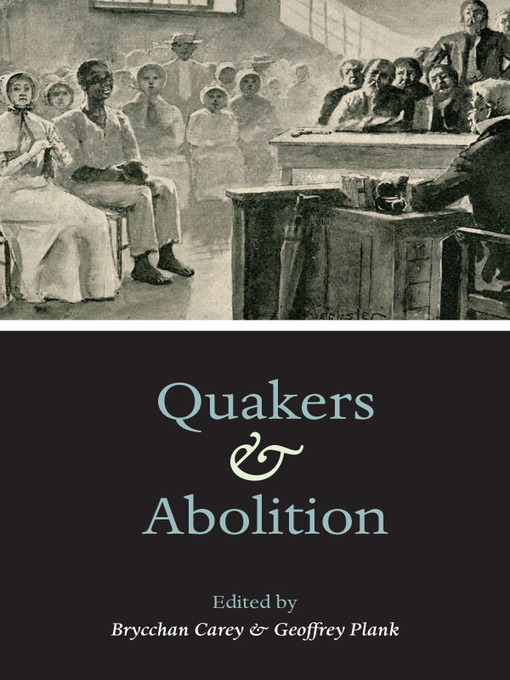This collection of fifteen insightful essays examines the complexity and diversity of Quaker antislavery attitudes across three centuries, from 1658 to 1890. Contributors from a range of disciplines, nations, and faith backgrounds show Quaker's beliefs to be far from monolithic. They often disagreed with one another and the larger antislavery movement about the morality of slaveholding and the best approach to abolition.
Not surprisingly, contributors explain, this complicated and evolving antislavery sensibility left behind an equally complicated legacy. While Quaker antislavery was a powerful contemporary influence in both the United States and Europe, present-day scholars pay little substantive attention to the subject. This volume faithfully seeks to correct that oversight, offering accessible yet provocative new insights on a key chapter of religious, political, and cultural history.
Contributors include Dee E. Andrews, Kristen Block, Brycchan Carey, Christopher Densmore, Andrew Diemer, J. William Frost, Thomas D. Hamm, Nancy A. Hewitt, Maurice Jackson, Anna Vaughan Kett, Emma Jones Lapsansky-Werner, Gary B. Nash, Geoffrey Plank, Ellen M. Ross, Marie-Jeanne Rossignol, James Emmett Ryan, and James Walvin.
| Cover Title Contents Acknowledgments Introduction Brycchan Carey and Geoffrey Plank Part I. Freedom within Quaker Discipline: Arguments among Friends 1. "Liberation Is Coming Soon": The Radical Reformation of Joshua Evans (1731–1798) Ellen M. Ross 2. Why Quakers and Slavery? Why not More Quakers? J. William Frost 3. George F. White and Hicksite Opposition to the Abolitionist Movement Thomas D. Hamm 4. "Without the Consumers of Slave Produce There Would Be No Slaves": Quaker Women, Antislavery Activ 5. The Spiritual Journeys of an Abolitionist: Amy Kirby Post, 1802–1889 Nancy A. Hewitt Part II. The Scarcity of African Americans in the Meetinghouse: Racial Issues among the Quakers 6. Quaker Evangelization in Early Barbados: Forging a Path toward the Unknowable Kristen Block 7. Anthony Benezet: Working the Antislavery Cause inside and outside of "The Society" Maurice Ja 8. Aim for a Free State and Settle among Quakers: African-American and Quaker Parallel Communities in 9. The Quaker and the Colonist: Moses Sheppard, Samuel Ford McGill, and Transatlantic Antislavery acr 10. Friend on the American Frontier: Charles Pancoast's A Quaker Forty-Niner and the Problem of Slave Part III. Did the Rest of the World Notice? The Quakers' Reputation 11. The Slave Trade, Quakers, and the Early Days of British Abolition James Walvin 12. The Quaker Antislavery Commitment and How It Revolutionized French Antislavery through the Crèvec 13. Thomas Clarkson's Quaker Trilogy: Abolitionist Narrative as Transformative History Dee E. Andre 14. The Hidden Story of Quakers and Slavery Gary B. Nash Bibliography Contributors Index |"A nicely balanced volume in every way, important not only for what it covers but also for how it will inspire future students of Quakers and race. These essays encourage other scholars to reexamine Quakers and their interracial activism, while suggesting a variety of useful new perspectives and tools."
—Allan W. Austin, author of Quaker Brotherhood: Interracial Activism and the American Friends Service Committee, 1917-1950
"The editors write in their introduction that they hope 'the essays offered here will raise as many questions as they answer and encourage further research' (p. 10). They succeed admirably in this goal, presenting a strong collection of essays that leave one inspired to learn more."—The North Carolina Historical Review
"This work provides a more complete...
